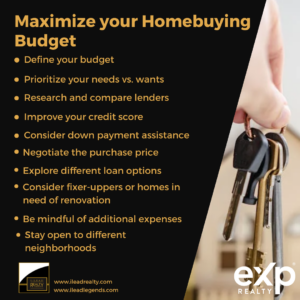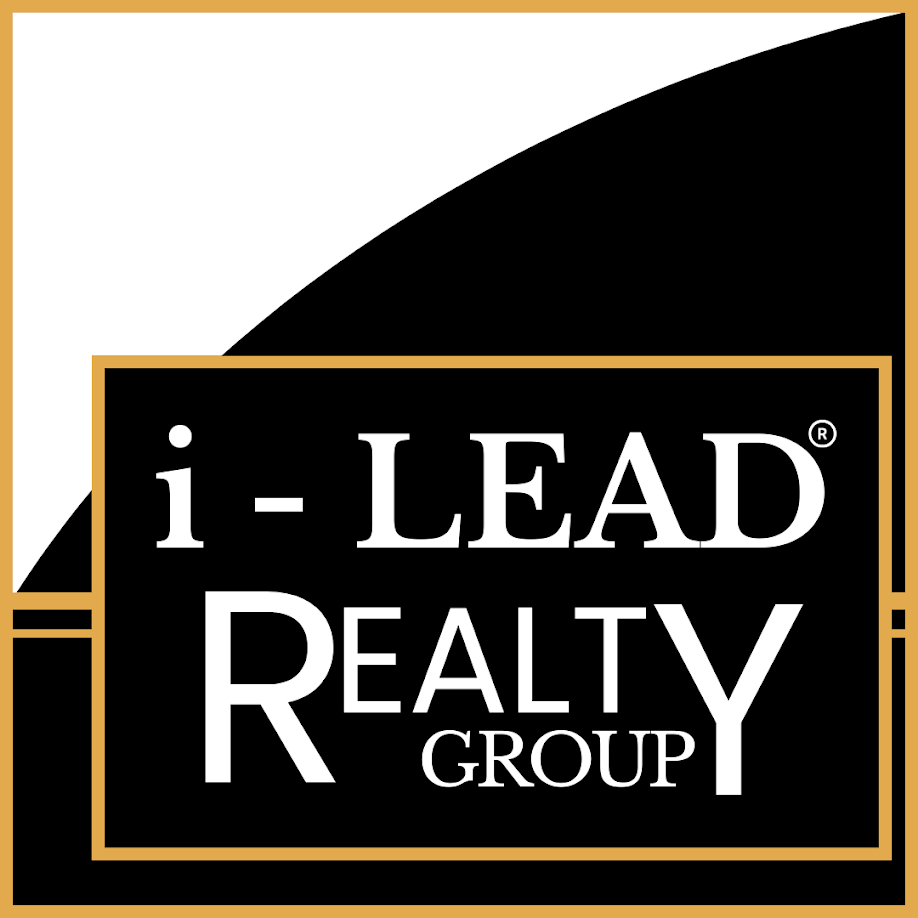By: Jerika P – i-Lead Realty Social Media Manager

Maximizing your home buying budget is crucial for securing a property that meets your needs and desires without compromising financial stability.
Here’s how to maximize your home buying budget:
1. Define your budget
Determine the maximum amount you can comfortably afford for your home purchase. Consider your income, expenses, and financial goals. Use online mortgage calculators to estimate your monthly payments based on different loan amounts and interest rates.
2. Prioritize your needs vs. wants
Make a list of your essential requirements for a home, such as location, number of bedrooms, and critical features. Differentiate them from non-essential wants. Focus on meeting your needs first, and be willing to compromise on some wants to stay within budget.
3. Research and compare lenders
Shop around for mortgage lenders and explore different loan options. Compare interest rates, loan terms, and closing costs. A slight difference in interest rates can significantly impact your monthly payments and long-term affordability.
4. Improve your credit score
A higher credit score can qualify you for better mortgage terms and lower interest rates. Pay your bills on time, reduce your debts, and avoid new credit applications before applying for a mortgage. Request a copy of your credit report to identify and correct any errors.
5. Consider down payment assistance
Research available down payment assistance programs or grants from local, state, or federal agencies. These programs can provide financial support or help with relative costs, making homeownership more affordable.
6. Negotiate the purchase price
Work with a knowledgeable real estate agent who can help you negotiate the purchase price. Conduct thorough research on recent comparable sales in the area to understand the market value of the property. Make a reasonable offer based on this information.
7. Explore different loan options
Investigate various loan programs, such as FHA loans or VA loans, that may offer lower down payment requirements or more favorable terms. Consider consulting with a mortgage professional to determine which option best suits your financial situation.
8. Consider fixer-uppers or homes in need of renovation
Properties that require cosmetic updates or repairs are often priced lower. If you’re willing to put in some sweat equity, you can potentially save money and increase the value of the property over time.
9. Be mindful of additional expenses
Factor in additional expenses beyond the purchase price, such as closing costs, property taxes, homeowners insurance, and maintenance costs. Plan your budget to accommodate these expenses to avoid financial strain after purchasing the home.
10. Stay open to different neighborhoods
Expanding your search to nearby neighborhoods or areas that are slightly further from your ideal location can sometimes offer more affordable options without compromising on quality.
Remember, it’s crucial to balance your budget and your housing needs. Don’t stretch your finances too thin or settle for a property that doesn’t meet your long-term requirements. Working with a knowledgeable real estate agent and a trusted mortgage professional can provide valuable guidance throughout the process of maximizing your homebuying budget.
If you are searching for a Real Estate Professional or would like to learn more, you can contact us here.
Not sure if you want or need to use a realtor? Here are 4 reasons why you should. Watch the video here.

